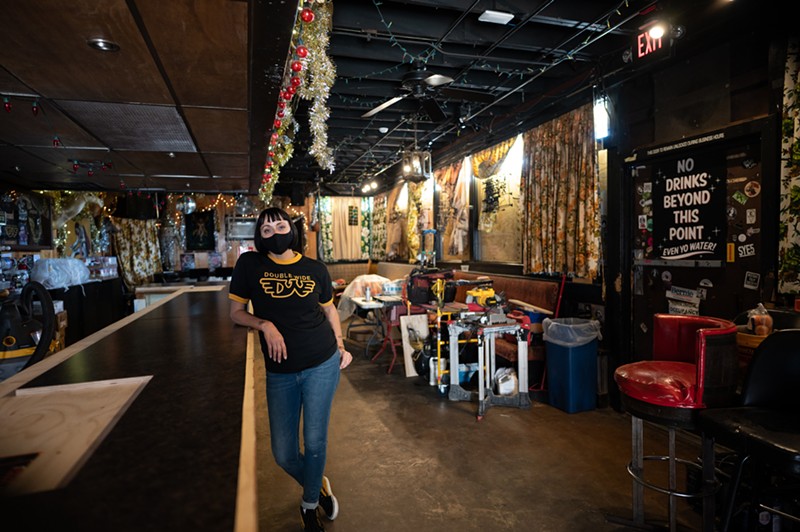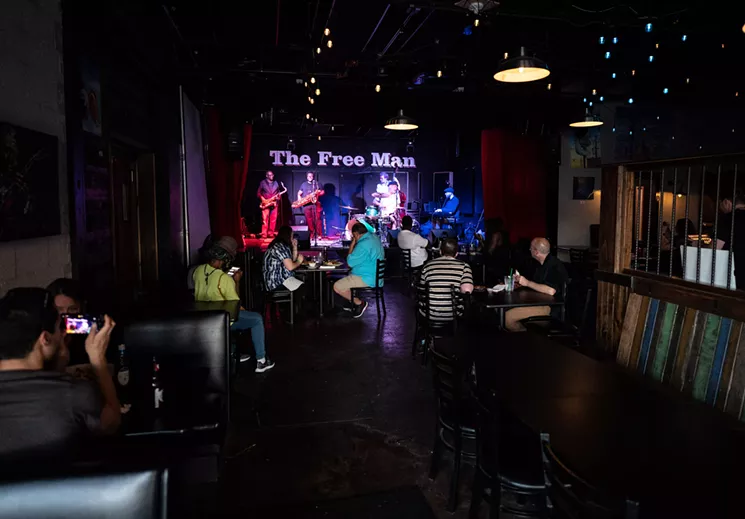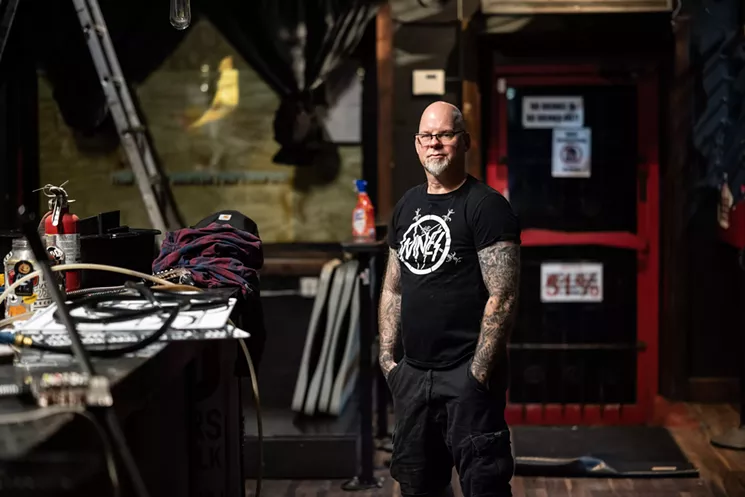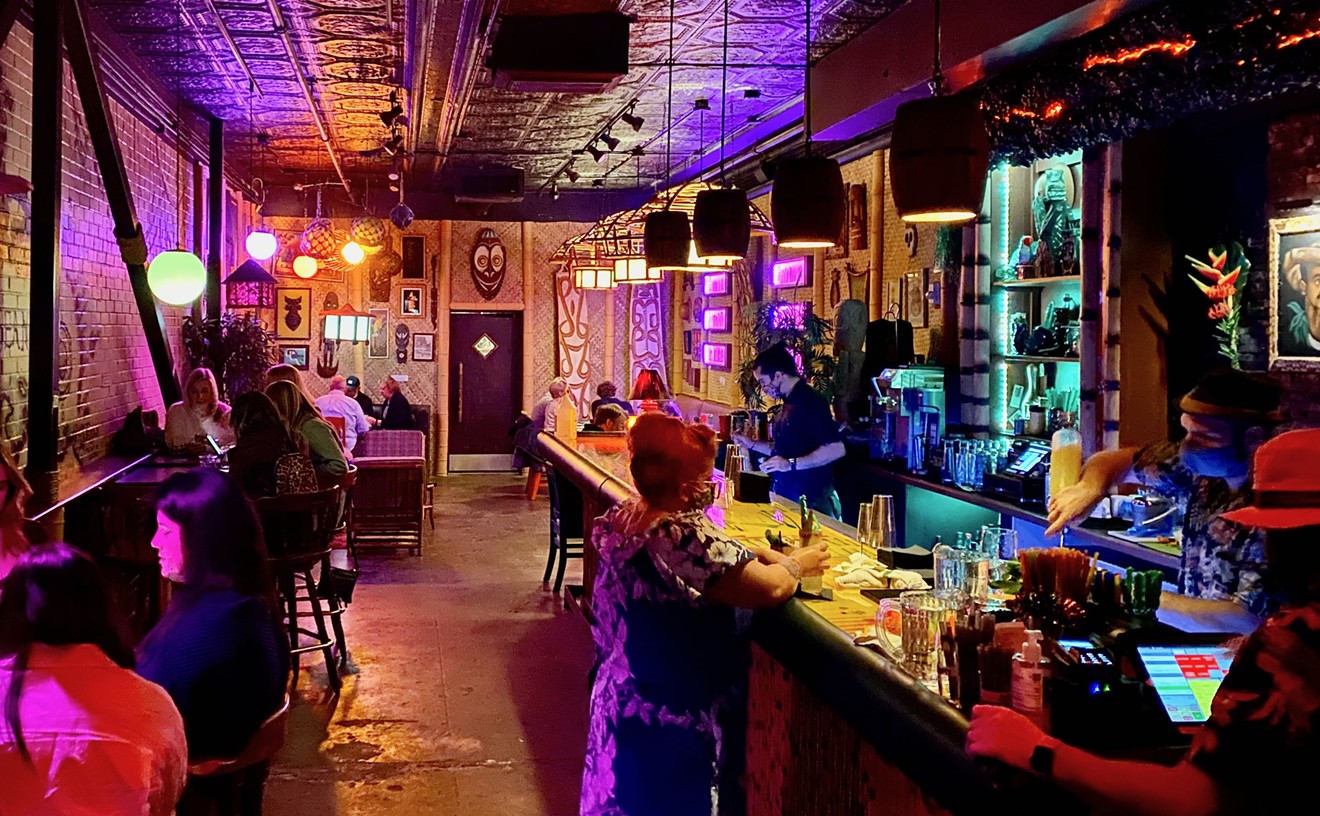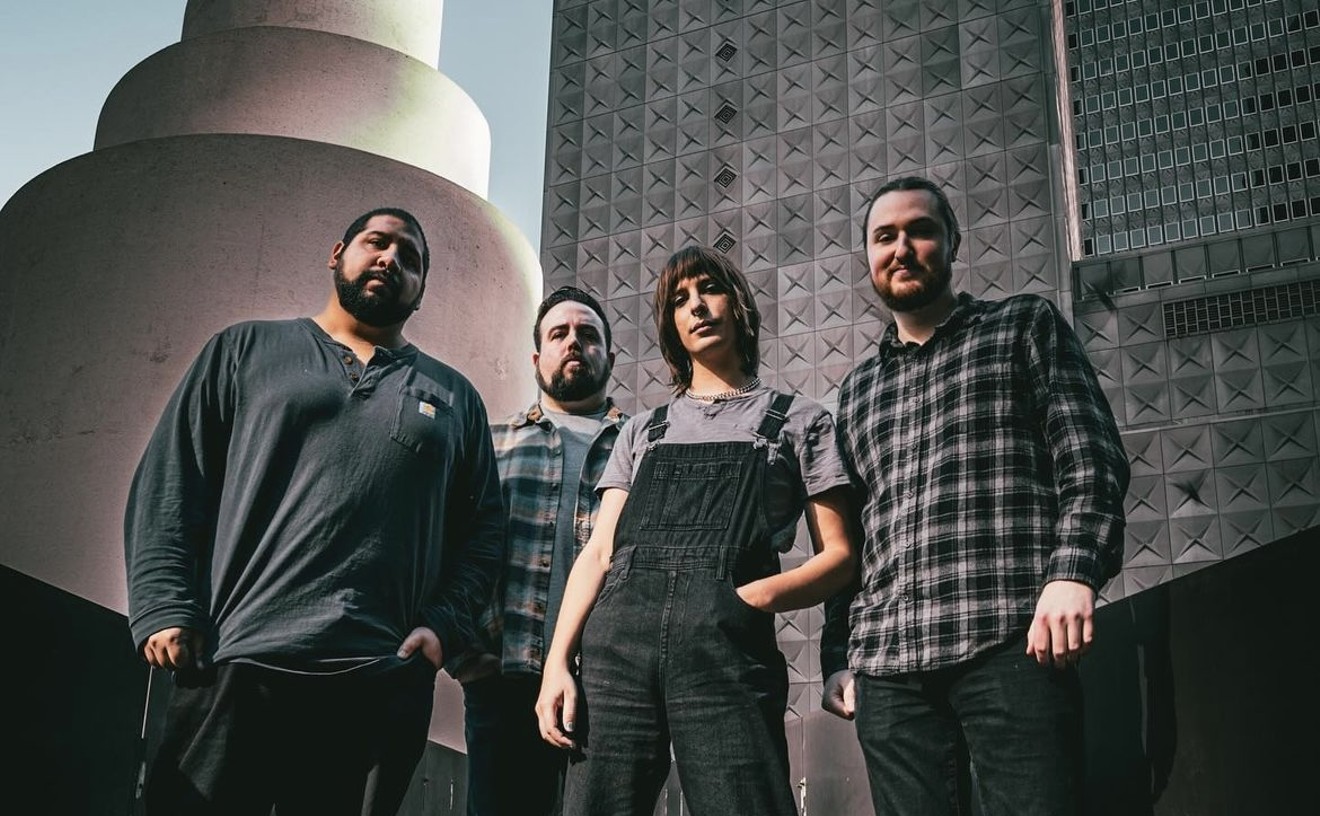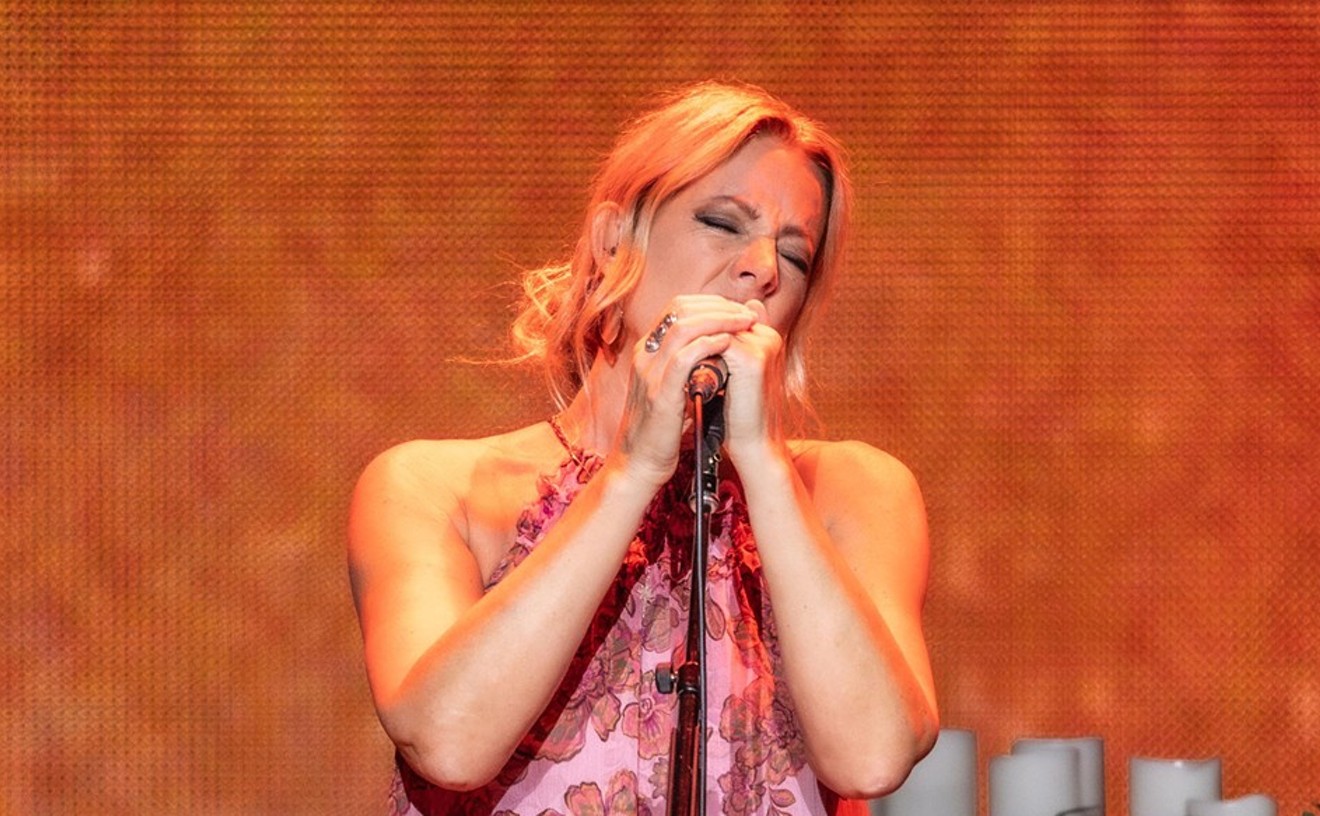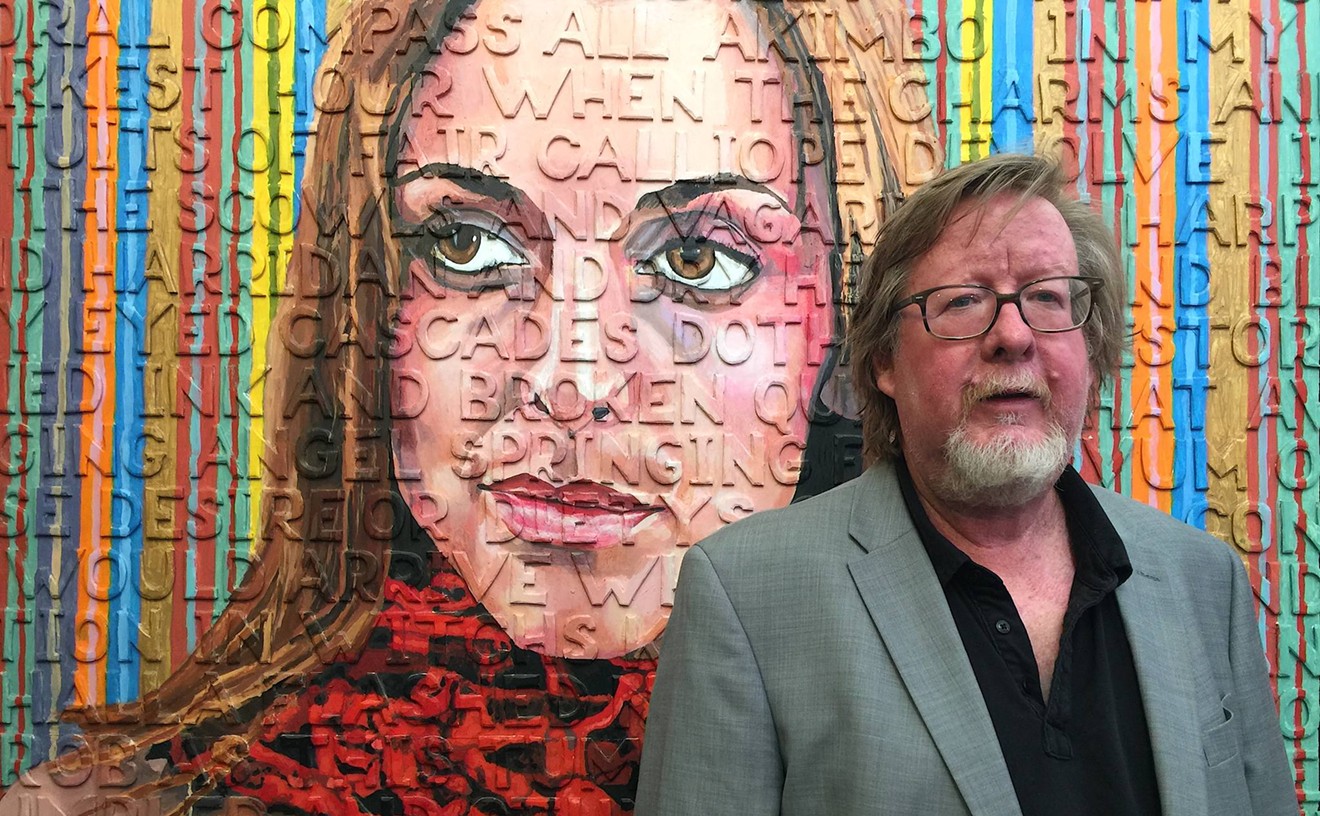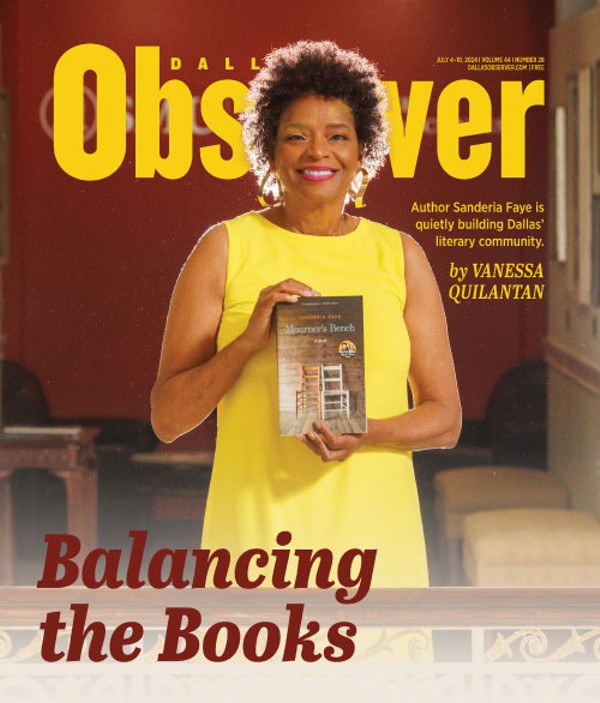As the country continues to grapple with the COVID-19 pandemic, members of the music industry are wondering what the future holds for their craft and their jobs. Is it livestreams like QuaranTV? Prekindle thinks so, and is developing a platform that will produce ticketed livestreams. Will fans once again yearn to attend concerts with dozens, hundreds, even thousands of other people? Local promoters, label reps and business owners hope for the latter but don't expect it to happen soon.
“We want to keep people safe and do it right, but how do you do that when you’re serving alcohol?" – Kim Finch, The Double Wide
tweet this
“I think being in a crowded room with a bunch of other people is the last thing anyone wants right now,” says Rico Andradi, chief financial officer and co-founder of local label Field Day Records. “No one wants to be the band that rushes back into things and gets everyone sick. No one wants that headline.”
Venue operators also must balance profit and safety, two priorities that now seem at odds.
“We don’t want to do it half-assed,” says Kim Finch, who owns Double Wide, the bar and venue that hosted the live QuaranTV concerts. “We want to keep people safe and do it right, but how do you do that when you’re serving alcohol? People don’t want to adhere to the rules when they’re not drunk.”
Less-Than-Grand Reopening
Most venue operators did not want to talk about their plans to reopen. Live Nation refused to chat. Other owners insisted they needed to talk it over among their business partners, then never responded to the Observer’s inquiry.
Clint Barlow, one of the owners of Trees, Canton Hall and The Bomb Factory is awaiting further guidance for his venues, and said all three establishments “will abide by all local, state, and federal laws recommended concerning COVID-19 once the conditions are given.”
Those who spoke to us agreed on one thing: No one knows what is going to happen.
“I simply cannot envision a club where people have to dance 6 feet away from others while wearing masks,” says Allen Falkner, the heavily inked impresario at The Nines Bar. “Nor would I expect people to queue up to a bar and social distance. It's just not a reality.”
The pandemic already forced the owner of the Lizard Lounge to announce the long-time Deep Ellum club is closing, though he told The Dallas Morning News he hopes for its return in some form someday. Meanwhile, Falkner, Finch and other members of the local music industry have difficulty envisioning a world without live music. They know it will exist in some form, but will that form include them?
“A world without live experiences is something I don’t want to think about,” says J.R. Denson, a partner at Prekindle, the Dallas-based ticketing and event promotion company. John Jay Myers, owner of The Free Man, said almost exactly the same thing.
“I couldn’t put my head around a world that didn’t have live music,” he says. “I couldn’t put my head around a world that didn’t have little jazz bars or cool little clubs. I don’t even want to be a part of that world.”
But the future looks bleak. The recently formed National Independent Venue Association (NIVA) warns that without federal aid the majority of its members do not have enough cash to survive six more months. Club Dada, one of NIVA’s more than 800 members, released a statement echoing this sentiment on May 7.
“The bottom line is this can’t continue.” – John Jay Myers, The Free Man
tweet this
“When this crisis began, independent music venues were the first to close, and we will be the last to open,” the statement reads. “While completely shuttered we have no revenue, our employees and artists are without jobs, and normal bills keep coming, regardless.”
The statement urges Club Dada fans to contact their senators and representatives and “tell [them] how important Club Dada is to you and Dallas.” The venue’s leadership did not respond to requests for further comment.
Some venues did receive loan money from the federal government’s stimulus packages, but it’s already gone. Falkner says he is diverting 75 percent of the funds to his employees and 25 percent to his landlord. Finch says Double Wide received some, too, but it did not help because of timing.
“I wish we could’ve used that when they got back to work, so it can compensate for any shortfalls,” she says. “It wasn’t thought out for businesses that have to be closed right now.”
Granada Theater is a part of NIVA, too. Owner Mike Schoder says that the logistics of reopening are still being configured, but he has some ideas.
“If we open at 50 percent capacity, we have the chairs and tables to space people out,” he says. “Obviously the style of music doesn’t always lend itself to a seated show, but for some shows, we can do it.”
Schoder says he and his team are currently scrutinizing the building, figuring out how to get fans in and out “without people right up against each other.”
“When we reopen, the national tours will still be a few months off,” he says. “But we should be able to get some local shows in here pretty quickly.”
Like some of the others, Schoder says Granada did indeed receive stimulus money, but it offered little solace. The money must be spent in eight weeks, a challenge for businesses that are not currently operating.
Some venues double as restaurants and were allowed to resume indoor dining at 25 percent capacity May 1 as part of Gov. Greg Abbott’s controversial reopening plan. Myers’ Free Man reopened, and he plans to have musicians and bands playing at the club throughout the summer.
“We’re a jazz and blues club, so on the weekdays, 25 percent is pretty big for us,” he says, laughing. “That’s our normal weekday night. Now, on Friday and Saturday, 25 percent won’t cut the mustard.”
The Free Man reopened May 7, a move that earned Myers some backlash on Facebook, but the owner is unmoved.
“The bottom line is this can’t continue,” he said in late April, referring to the closings. “So we have to start easing our way into it. I think there’s a middle of the road between opening the floodgates and everyone staying home.”
For The Free Man, “the middle of the road” looks a little different than fans may remember. The venue now charges visitors $5 at the door (anathema to Myers mere months ago) and will not allow dancing or standing near the stage. Waitstaff concerned about the virus are not required to come to work; Myers is upping sanitation efforts and diverting shifts to staff members who feel comfortable working.
The Free Man enjoyed a good February, and Myers says it was the first time in three years that the venue made money after paying its debt.
“I was finally going to be able to say we made money,” Myers says. “Two weeks later, there’s a pandemic.”
Field Day Records has a similar story.
February 2020 was the biggest manufacturing month in the history of their company, but 5,000 vinyl units had to be put on pause. They are now in “hurry up and wait mode,” working with clients to plan their licensing and future releases while having no idea what the future holds.
“The word on the street is that festivals won’t be a thing until fall 2021,” Andradi says. Thus, Field Day Records declined involvement in a UK festival scheduled for the fall. Andradi still tries to be optimistic about the future of his business and music in general, particularly for local acts.
“People are going to need music when this is all over, and a lot of the national bands aren’t going to be doing anything yet,” he says. “So people will go see a local band. They’ll go to Club Dada.”
Competing Priorities
The venues that have not yet opened — most of them, since the governor's reopening order didn't include bars — are still planning for the day that they can. The problem is they don’t have much guidance on how to do that. Falkner has a litany of questions about capacity, social distancing and, firstly, timing. He needs more info before he finishes any plans.
“For the time being, we are just going to plan for our standard format and make adjustments to comply with the state and CDC recommendations,” he says. He knows at least one thing will be different. “We have a large shipment of hospital grade disinfectant that we've been waiting to receive for almost 2 months,” he says. “I spoke with the distributor, and hopefully it will arrive very soon.”
When asked if he could possibly turn a profit with 25 percent capacity, like the limit applied to restaurants, Falkner demurred.
"No matter how good the drinks, talented the band, or charismatic the DJ, without a crowd, people just don't want to attend.” – Allen Falkner, The Nines Bar
tweet this
“The short answer is yes; the long answer is no,” he says. “If we were able to maintain 25 percent capacity then yes, it's feasible to turn a profit. However, bars, venues and nightclubs require crowds to be successful. No matter how good the drinks, talented the band, or charismatic the DJ, without a crowd, people just don't want to attend.”
The thought that success requires a crowd, making success dangerous, keeps Finch up at night.
“You want to take care of your staff, but what if you open and become part of the problem?” she asks. “And then still don’t make any money? You’re damned if you do, damned if you don’t.”
When the pandemic began, Double Wide launched QuaranTV, then pivoted to Git’N’Go market, a constantly evolving marketplace whereby shoppers order food online, then go to Double Wide for pickup. As she oversees these operations, Finch makes plans for reopening. She may continue the market or expand the venue while adding hourly cleanings and sprinkling sanitation stations throughout the building. She knows the near future will look “drastically different” than anything Double Wide's customers have seen at the venue in the past. For now, her days are consumed by a constant inner calculus. No matter how she massages the numbers, she can’t see how 25 percent capacity will be profitable for her staff.
In her mind, the average customer spends $20. Even if the venue filled to quarter capacity, and chairs turned over every hour, Double Wide still does not turn a profit. The door guy does not get paid. And if the door guy does not get paid, Finch doesn’t want to open.
“How do I help these people when I can't create jobs?” Finch says, fighting tears. She organized a GoFundMe that raised more than $10,000 for her staff, which she says she is disbursing now. Once that runs out, she feels as if she is faced with an impossible task: keeping them employed, keeping them safe and keeping everyone else safe.
“We all want to get back to work, and we’re looking for leadership in how to do that properly,” she says. “We need someone to take this by the balls and say, ‘Here’s what we’re doing,’ but we don’t have that. There are no good plans.”

